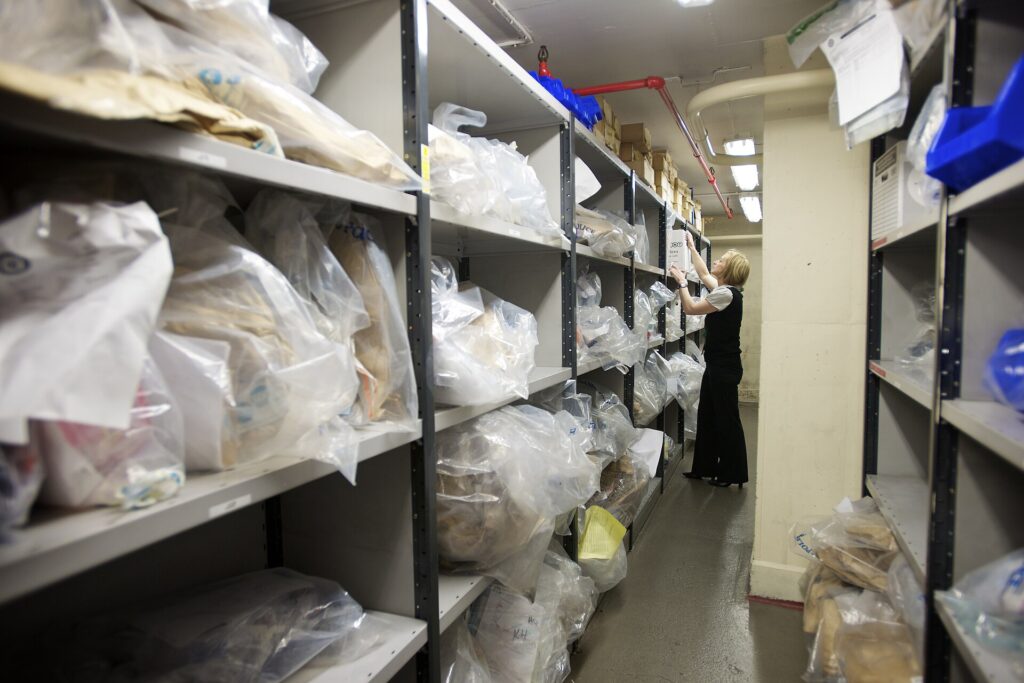Now Reading: Legal Status of DNA evidence in India
-
01
Legal Status of DNA evidence in India
Legal Status of DNA evidence in India
INTRODUCTION
Deoxyribonucleic acid(DNA) is a molecule that contains the biological matter which makes species unique. During reproduction DNA, along with the instructions it contains, is passed from adult organisms to their offspring. DNA test was first reported in the year 1984 by Sir Alec John Jeffreys. DNA application helps to identify the criminals in the crime, to sought out parentage disputes, to check migration and in genealogical and medical research.
The admissibility of the DNA as evidence in the court mainly depends on proper documentation, collection, preservation, packaging and it should satisfy the court needs. There is no specific legislation in India which provides specific guidelines to the investigative agencies, court and the procedure that’s need to be adopted in the cases involving DNA as evidence. Moreover, there is no such specific provision under Code of Criminal Procedure of 1973 and Indian evidence Act of 1872. Section 53 of CrPC tells police officer to get the assistance of a medical practitioner for the purpose of the investigation but doesn’t talks about the collection of blood, semen, saliva etc to bring the criminal charges against the accused. The amendment of CrPC by the CrPC Amendment Act, 2005 as brought two new sections which tells about the investigating officer to collect DNA sample from the body of the accused and the victim with the guidelines of medical practitioner. These sections also allows the examination of the accused person of rape case and the victim of the rape case. But it remained as conflicting in a state of doubt as the opinion of the Supreme Court and various High Courts in the admissibility of these evidences. Judges won’t deny the scientific accuracy and conclusiveness of DNA testing, but in some cases, they do not admit these evidence on the ground of legal or Constitutional Prohibition and sometimes for the public policy.
There is an urgent need to re-examine or amendment these sections and law. As there is no rule present in the Indian Evidence Act, 1872 and Code of Criminal Procedure, 1973 to manage these issues. Section 112 of the Indian Evidence Act, 1872 which determine child’s parentage and states that a child born in a valid marriage between a mother and a man within 280 days of the dissolution of the marriage, and the mother remaining unmarried shows that the child belongs to the man, unless proved otherwise but again no specific provision which would cover modern scientific techniques. DNA analysis as gained importance in determining the paternity of a child in the cases of civil disputes.
DNA evidence is the most significant evidence in the maintenance of proceeding in the criminal courts under section 125 of the CrPC. The introduction of the DNA technology has become a serious challenge to some legal and fundamental rights of a individual such as ‘Right to Privacy’, ‘Right against self-incrimination’. And this is the most important reason, why courts sometimes refused to accept the evidences based on DNA Technology. Right to Privacy has been included under Right to Life and Personal Liberty or Article 21 of the Indian Constitution, and Article 20(3) provides Right against self-incrimination which protects an accused person in any criminal cases from providing evidence against himself or evidences which can make him guilty. But it has been held by the Supreme Court on several occasions that Right to Life and Personal Liberty is not an absolute Right.
With regard to this Tiwari case can be seen as example. Tiwari was involved in a sex scandal which tells, Tiwari was on the bed with three women at his official residence in the Raj Bhavan. A police complaint (FIR) as filed against Tiwari for “sexually abusing girls, blackmail and misuse of office” and the Raj Bhavan staff were interrogated by police about details related to the discreditable action, alleged to be the result of the fallout of a mining deal. Tiwari publicly apologized, but told that he was trapped by the politicians. In 2008, Rohit Shekhar Tiwari filed a paternity suit stating that Tiwari to be his biological father. The court ordered for DNA mapping of Tiwari and the court successfully compelled compliance on 29 May 2011. On 27 July 2011, the Delhi High Court, ordered to end the controversy but it got rejected by Tiwari’s lawyers. Tiwari’s lawyer told to keep his paternity test result a secret. Recently refusal of the Supreme Court to dismiss the Delhi High Court’s decision ordering Veteran Congress Leader N.D. Tiwari to undergo the DNA test, which is very important from the viewpoint of the admissibility of DNA evidence. In this case, Shekar has claimed to be the biological son of N.D. Tiwari, but N.D. Tiwari refused to undergo DNA test by stating that it would be the violation of his Right to Privacy and it would cause him public humiliation. But the court refused it by saying the test would not be revealed to anyone and it would be under bias, so there is no point of getting humiliated. Supreme Court further stated that we want the young man to get justice, he should not leave without any justice. On 27 July 2011, the DNA test results were released by the court which proves that Tiwari was the biological father of Rohit Shekhar Tiwari, and Ujjwala Tiwari is the biological mother. On 3 March 2013, Tiwari said “I have accepted that Rohit Shekhar is my son”. The DNA test also proved it. On 14 May 2013, Tiwari married Ujjwala Tiwari in a ceremony that took place in Lucknow. Rohit Shekhar was hanged to death on 16 April 2019 cruelly by his wife Apoorva, it is said that she pounced on him and smothered him, as he was highly intoxicated and could not resist the attack. According to Delhi Police Statement, murder was not planned before but it has happened suddenly during that moment. According to his wife’s testimony, their relationship was not good from the beginning of their marriage. And the case is under the trail.
CONCLUSION
The Supreme Court ruled that a DNA test cannot be ordered without adequate satisfaction regarding the need for this test. The state and federal courts have increasingly accepted DNA evidence as admissible. DNA evidence is a powerful tool in criminal investigation and prosecution, but it must be used with care. It should only be considered in light of other available evidence. DNA evidence should be collected carefully in order to avoid contamination so that the court can accept it for making judgments.
REFERENCE
https://www.ncbi.nlm.nih.gov/books/NBK234535/2
https://www.jstor.org/stable/43953503?seq=1
https://www.jstor.org/stable/44782478
https://www.sciencedirect.com/science/article/pii/S0379073814002230








